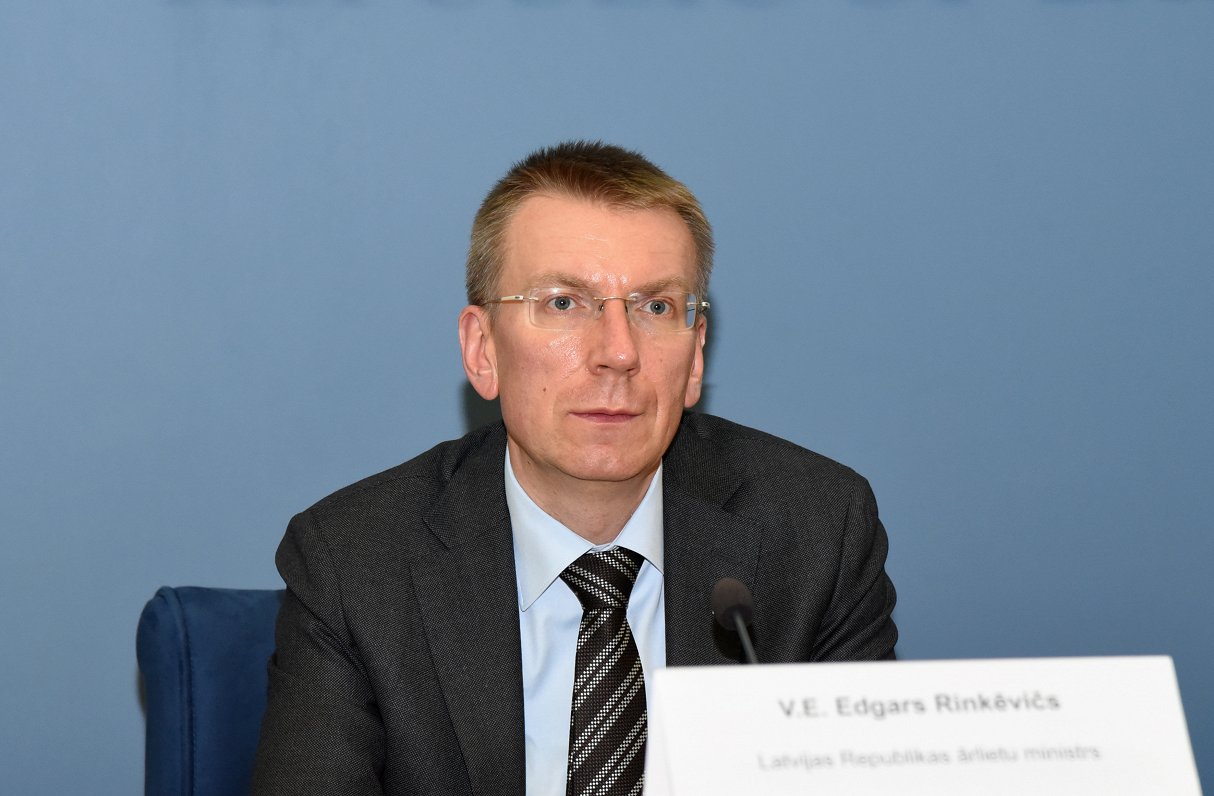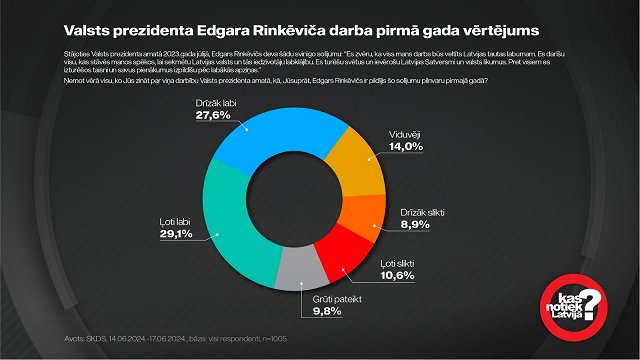What follows are excerpts of a more substantial interview that appeared on LSM's Latvian-language service February 26.
We're approaching the moment when the Moneyval report on Latvia's finance system is to be published. Have your colleagues passed you any info as to what it will say?
The Foreign Ministry is not the leading institution in the Moneyval process. We have our own range of topics we're solving, gearing more towards sanctions legislature and passing information to businesses and banks over aspects of applying sanctions. Currently the government, as well as independent institutions are working on meeting Moneyval recommendations. At the moment I have no information over the results. We have some time, and we have a lot to do.
It's clear we'll be able to amend and write laws as well as make them more specific. But what matters most is in what way we'll be applying these laws. The verdict of the Moneyval report depends on the way we'll implement specific actions in controlling the financial sector. We can cross 500 things off our list if we wish to, saying we've amended this law or that we've led that seminar. But what matters is the way we carry it out.
Often the criticism leveled against Latvia seems two-faced. Just recently the US Ambassador in Latvia pointed out problems that Latvia can expect if it does not clear its financial sector up. At the same time, famous off-shores such as Cyprus are not criticized.
First of all, Cyprus is not a NATO member state. Secondly, our relations with the US are very multi-faceted. When someone tries telling me that the Moneyval report is not to be taken too seriously, as it mentions countries that are much less developed than Latvia, I would like to point out that there wasn't as much money funneled through these countries as through Latvia. The story is very similar in Estoina, while Lithuania recently came under the enhanced follow-up procedure. I think we can't really talk about two-facedness. The same standard, more or less, is applied to everyone.
Our level is completely different in that it's clear there was much more money than we were able to control physically. We have done a lot. The first impetus were the OECD accession talks. The current situation is much more different from the one in 2015 or 2016. Sadly, the problems turned out to be more pervasive and of a graver nature.
It's not just a story about funding, the country's reputation or credit ratings. It's also a story about national security and our own strategic partnership with NATO and EU member states. That's why our situation is a bit different. It would not be appropriate whining about double standards. Before pointing the finger at someone else, let's put our own things into order instead.
You gave public warnings about these matters at the time we were joining the OECD. Why didn't anyone listen back then? There's also the matter of the responsibility of the EU's regulatory institutions. How could the European Central Bank (ECB) not notice billions funneled into the Eurozone?
What I consider fundamental mistake on a European level is the unwillingness to give greater powers to European institutions over preventing money laundering. Many countries were against it. Including Latvia. Our own representatives objected to this during discussion over new regulations. We didn't want anyone else probing around.
This shows that we've a very serious, fundamental problem. The ECB is responsible for liquidity. That's a lesson from the crisis. But as we see now, there are unsolved questions about the responsibility of the EU watchdogs and central banks over preventing money laundering. I would like our bitter experience to serve as a lesson for others in Europe.
I have had two occasions in my life when I'd been warning others in a long, drawn-out and dorky way that something must be done but have not been listened to. The first case was over allotting 2% of GDP to defense. I remember my first official address to the Saeima in the [annual] Foreign Policy debate in 2012. I talked about that, as if against a brick wall. Less than three years passed and we understood that things are serious.
The second concerns the financial sector. People simply thought everything is alright, that we don't have to do anything and that we'll manage somehow. It's a desire to earn a lot of money and not look after it.
Many prefer the good old principle, that money does not stink, over the fact that at one point the party's over. Sadly, the party was to end in a radical way.





























